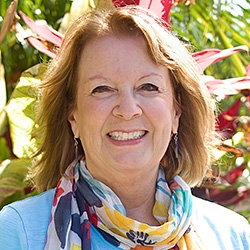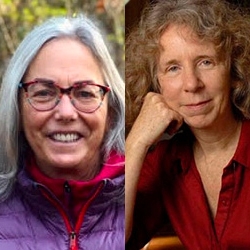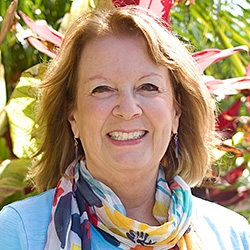
Search Results: mindfulness
-
Trainer Tip: Mindfulness, focusing on what's happening now, is the foundation of Compassionate Communication. The more present we are, the greater the chance we will be aware of our needs and meet them, thus the greater opportunity for joy. Connect to your feelings and needs at least four times today. Notice how differently you conduct your day when you are mindful.
-
If you want a better connection it's crucial to be mindful about how your communication affects your partner. This means noticing and keeping eye contact, observing body language, and checking for their reactions. You can also share in small increments, check in before sharing vulnerable thoughts, and express what you notice. Give yourself empathy when you notice that you want to be right more than you’re wanting to be connected.
-
We can shift from being absorbed and identified with our inner chatter and feelings to being the space of awareness of these things. Observe your breath. Then observe your mind generating thoughts. Next, feel sensations of your body, particularly the difficult ones. Now, connect with the underlying energy of needs. Ask your unconscious mind for universal needs words related to what you now notice, think and feel.
-
Trainer Tip: "Sometimes we are dissatisfied in our primary relationship, yet the thought of making a change is scary, so we stay in it. Sometimes we think we're afraid to learn the truth, so we don't ask direct questions."
-
-
Ask the Trainer: "I recently attended an NVC workshop where the focus was entirely upon empathy, and expressing honestly was not covered. Aren't empathy and honesty both vital NVC components?"
-
Ask the Trainer: "I have the understanding that the unconscious is vast compared to conscious mind. When I state 'needs' how well can I depend on there being something beneath my awareness that is actually the motivation?"
-
Does the thought of asking the following question stop you cold? "Would you tell me what you heard me say?" Mary Mackenzie, CNVC Certified Trainer known for her colloquial method of speaking and teaching NVC, offers a simpler method.
-
Our inner world shapes what we do, including the results we see in relationships and social change efforts. Physical and verbal actions are expressions of what’s happening in our minds. If we want certain outcomes, it helps to be mindful of the intentions we plant within ourselves.
-
The “mind” or our “ego” are often depicted as a static entity, an unchangable part of human nature, and as obstacles or negative parts of ourselves to overcome. This view creates maligning, a split within us, while remaining invisibly part and parcel of authority-based societies --the dominant culture and institutions into which we are born. Instead, I want to advocate an integration of reason and emotion, mind and heart, plus self and others.
-
-
Find renewed aliveness and connection in your daily life through NVC and Buddhist Mindfulness practices.
In this 6 session course with Roberta Wall and Barbara Bash, you will explore how NVC helps bring to life Buddhist principles and values in relationship to yourself and others. And, you will discover how Buddhist practice deepens and supports your capacity to learn and live NVC in your daily life. -
John introduces his Self-Connection Exercise as a mindful way of coming to awareness via OFNR. Breath: immediately observable, a reminder to observe. Body: feeling the body, awareness of sensations. Needs: an experience of wholeness that expands awareness of the totality of experience. Listen.
-
-
Listen to John answer an NVC Library member's question about what we can do when we habitually place other's needs ahead our own. Healing and change can be reached through compassionate self-connection, needs awareness, mourning and mindfulness.
-
Anger can alert us that a need may be threatened. When anger lives in someone as a well-worn habit, it arises from a place of dissociation from one’s heart and is entangled with misinterpretations, a deep sense of threat, a history of pain, and social conditioning that isn’t life-serving. Read on for how intention, mindfulness, and specific actions can change that habit.
-
Join Itzel Hayward and Kathy Simon as they present two role-play scenarios showcasing diverse approaches to navigating difficult conversations. Throughout the demonstration, they underscore the significance of cultivating self-empathy and mindfulness to effectively engage in challenging dialogues. Specifically, they introduce a role-play scenario concerning affirmative action, aimed at illustrating the contrasting outcomes when utilizing or not utilizing nonviolent communication skills.
-
Being self-responsible is about empowerment — via noticing what is potentially in our locus of control, getting to know ourselves better, looking at our own role in how we experience life, and making conscious choices to act within our own power. This requires us to be mindful in relating our stories to our needs. Read on for more on this, and the various pifalls within thinking about self responsibility.
-
Given all that we are facing today as a society and a species, amongst some of the things we need is a well nourished heart. To nourish our hearts we need to discern where to wisely put our attention. Here are three practices to reclaim your attention, and replenish your reserves, so that you have the inner resources to do the work that is calling you. They are: train the mind, nourish the heart, and stay connected to purpose.
-
Ever wish you knew how you might experience more choice when you've been triggered, instead of being trapped in old habits and unmet needs? Wish you could REALLY heal old internal messages that tell you you're not good enough… not loveable… or not deserving? Join veteran CNVC Certified Trainer, Mary Mackenzie, for this 6-session course designed to deepen your ability to connect with self and heal your past through the process of Self-empathy.














